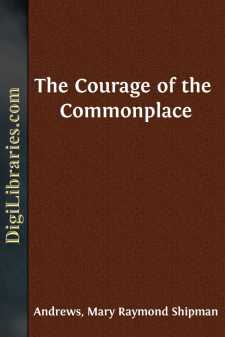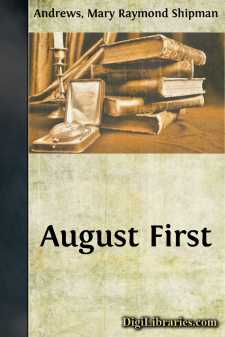Categories
- Antiques & Collectibles 13
- Architecture 36
- Art 48
- Bibles 22
- Biography & Autobiography 816
- Body, Mind & Spirit 145
- Business & Economics 28
- Children's Books 18
- Children's Fiction 14
- Computers 4
- Cooking 94
- Crafts & Hobbies 4
- Drama 346
- Education 58
- Family & Relationships 59
- Fiction 11831
- Foreign Language Study 3
- Games 19
- Gardening 17
- Health & Fitness 34
- History 1378
- House & Home 1
- Humor 147
- Juvenile Fiction 1873
- Juvenile Nonfiction 202
- Language Arts & Disciplines 89
- Law 16
- Literary Collections 686
- Literary Criticism 179
- Mathematics 13
- Medical 41
- Music 40
- Nature 179
- Non-Classifiable 1768
- Performing Arts 7
- Periodicals 1453
- Philosophy 66
- Photography 2
- Poetry 897
- Political Science 203
- Psychology 45
- Reference 154
- Religion 516
- Science 126
- Self-Help 86
- Social Science 82
- Sports & Recreation 34
- Study Aids 3
- Technology & Engineering 59
- Transportation 23
- Travel 463
- True Crime 29
Our website is made possible by displaying online advertisements to our visitors.
Please consider supporting us by disabling your ad blocker.
The Perfect Tribute
Description:
Excerpt
THE PERFECT TRIBUTE
On the morning of November 18, 1863, a special train drew out from Washington, carrying a distinguished company. The presence with them of the Marine Band from the Navy Yard spoke a public occasion to come, and among the travellers there were those who might be gathered only for an occasion of importance. There were judges of the Supreme Court of the United States; there were heads of departments; the general-in-chief of the army and his staff; members of the cabinet. In their midst, as they stood about the car before settling for the journey, towered a man sad, preoccupied, unassuming; a man awkward and ill-dressed; a man, as he leaned slouchingly against the wall, of no grace of look or manner, in whose haggard face seemed to be the suffering of the sins of the world. Abraham Lincoln, President of the United States, journeyed with his party to assist at the consecration, the next day, of the national cemetery at Gettysburg. The quiet November landscape slipped past the rattling train, and the President's deep-set eyes stared out at it gravely, a bit listlessly. From time to time he talked with those who were about him; from time to time there were flashes of that quaint wit which is linked, as his greatness, with his name, but his mind was to-day dispirited, unhopeful. The weight on his shoulders seemed pressing more heavily than he had courage to press back against it, the responsibility of one almost a dictator in a wide, war-torn country came near to crushing, at times, the mere human soul and body. There was, moreover, a speech to be made to-morrow to thousands who would expect their President to say something to them worth the listening of a people who were making history; something brilliant, eloquent, strong. The melancholy gaze glittered with a grim smile. He—Abraham Lincoln—the lad bred in a cabin, tutored in rough schools here and there, fighting for, snatching at crumbs of learning that fell from rich tables, struggling to a hard knowledge which well knew its own limitations—it was he of whom this was expected. He glanced across the car. Edward Everett sat there, the orator of the following day, the finished gentleman, the careful student, the heir of traditions of learning and breeding, of scholarly instincts and resources. The self-made President gazed at him wistfully. From him the people might expect and would get a balanced and polished oration. For that end he had been born, and inheritance and opportunity and inclination had worked together for that end's perfection. While Lincoln had wrested from a scanty schooling a command of English clear and forcible always, but, he feared, rough-hewn, lacking, he feared, in finish and in breadth—of what use was it for such a one to try to fashion a speech fit to take a place by the side of Everett's silver sentences? He sighed. Yet the people had a right to the best he could give, and he would give them his best; at least he could see to it that the words were real and were short; at least he would not, so, exhaust their patience....









